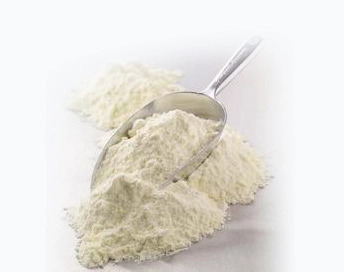Tel: 0129-4001010 Phone: +91 730 321 5033
Email: cs@absoluteveritas.com
BIS CERTIFICATION FOR PARTLY SKIMMED MILK POWDER IS 14542:1998
In today's competitive landscape, maintaining market presence without a certified, high-quality product can be challenging. Obtaining a BIS license may also be essential for selling products in the Indian market. To achieve BIS certification and ensure product quality, manufacturers must adhere to the specified Indian standards.
Let's delve deeper into at IS 14542:1998 for Partly Skimmed Milk Powder.
Partly Skimmed Milk Powder falls under the purview of IS 14542:1998. The adoption of this Indian Standard by the Bureau of Indian Standards followed the approval of the draft by the Food and Agriculture Division Council, as finalized by the Dairy Products and Equipment Sectional Committee. This standard delineates the requisites, sampling protocols, and testing methodologies for partly skimmed milk powder.
Partly Skimmed Milk Powder is produced through spray-drying milk after removing half of the cream, resulting in the removal of water. It serves as a viable alternative to regular or whole milk and plays a crucial role in both producer and consumer supply chains. The manufacturing process involves spray or roller drying of fresh skimmed cow or buffalo milk, either individually or in combination.
The material will be categorized into the following two types:
1) Type I: Partly Skimmed Milk Powder
2) Type II: Partly Skimmed Milk Powder (Sour)
The product should exhibit a color ranging from white to light cream, with the possibility of a greenish tint. It should be free from lumps, except for those that can easily disintegrate under gentle pressure. No extraneous substances, additional colors, or flavors are allowed in the product. Type I products may contain additives such as calcium chloride, citric acid, sodium citrate, sodium salts of orthophosphoric acid, and polyphosphoric acid, provided they do not exceed 0.3 percent by mass of the final product.
Type II products may include sodium bicarbonate as a neutralizing agent, with the caveat that the final product is labeled as "Unfit for Direct Consumption." Manufacturing and packaging must adhere to hygienic standards.
TESTS
The subsequent test must be conducted for Partly Skimmed Milk Powder.
-
Moisture
-
Flavour and taste
-
Hygienic conditions
-
Total Solids
-
Milk Fat %
-
Insolubility index
-
Total ash (on dry basis) %
-
Bacterial count
-
Coliform count
The product must adhere to the standard's specifications. Packaging and labeling must comply with IS 14542:1998. Additionally, the product may bear the Standard Mark (ISI Mark). Manufacturers need a BIS license from the Bureau of Indian Standards to use this mark, granted after evaluating their manufacturing infrastructure, production process, and quality control during a site visit.
PROCESS FOR BIS ISI MARK CERTIFICATION

BIS CERTIFICATION PROCESS
Acquiring a BIS license requires a comprehensive review of manufacturing infrastructure, quality control abilities, testing resources, and production procedures. This thorough assessment guarantees that products not only adhere to regulations but also prioritize consumer safety and reliability.
NOTE:
For comprehensive guidance on the BIS ISI Certification process, please explore:
WHY USE ABSOLUTE VERITAS?
Absolute Veritas is a prominent organisation from the private sector of India primarily dealing with the Inspection, Testing, Audits, Certification of products& consulting services to various industries in India and worldwide, ensuring compliance with regulatory standards and industry requirements. Offering a comprehensive range of services including product certification, testing, training, auditing, and compliance services, Absolute Veritas helps manufacturers and importers achieve higher production efficiency and quality standards.
Absolute Veritas (AV) will handle end to end pre-registration request, sample preparation, documentation, testing and application process for FMCS Certification
For any questions regarding the most recent update on FMCS registration licenses, please reach out to us via email at cs@absoluteveritas.com



